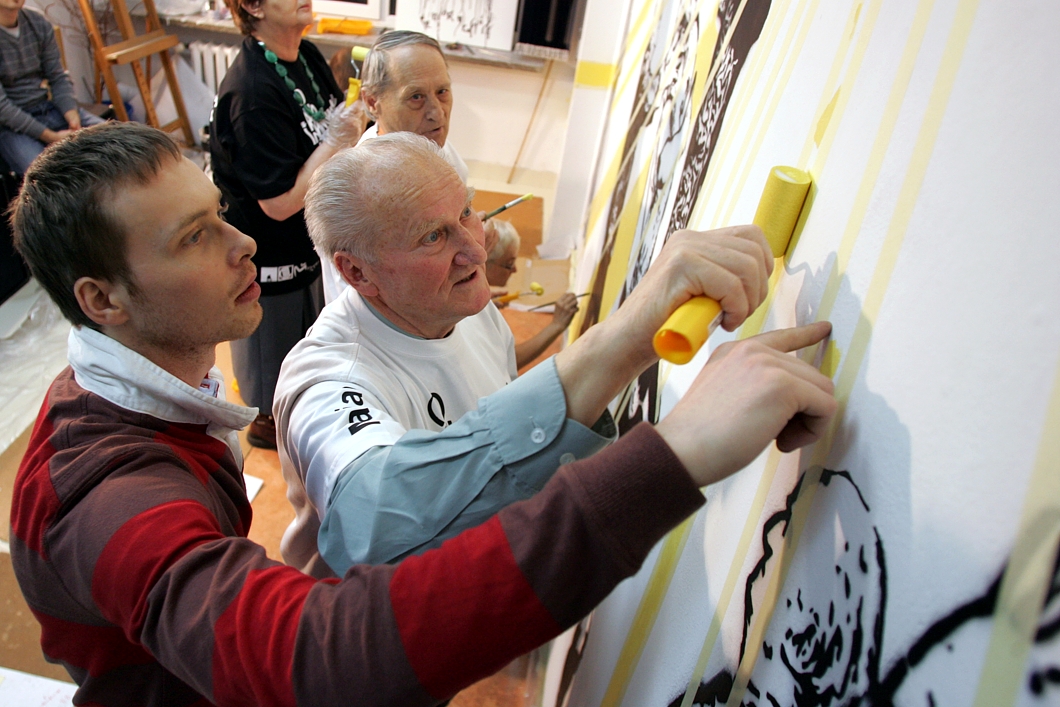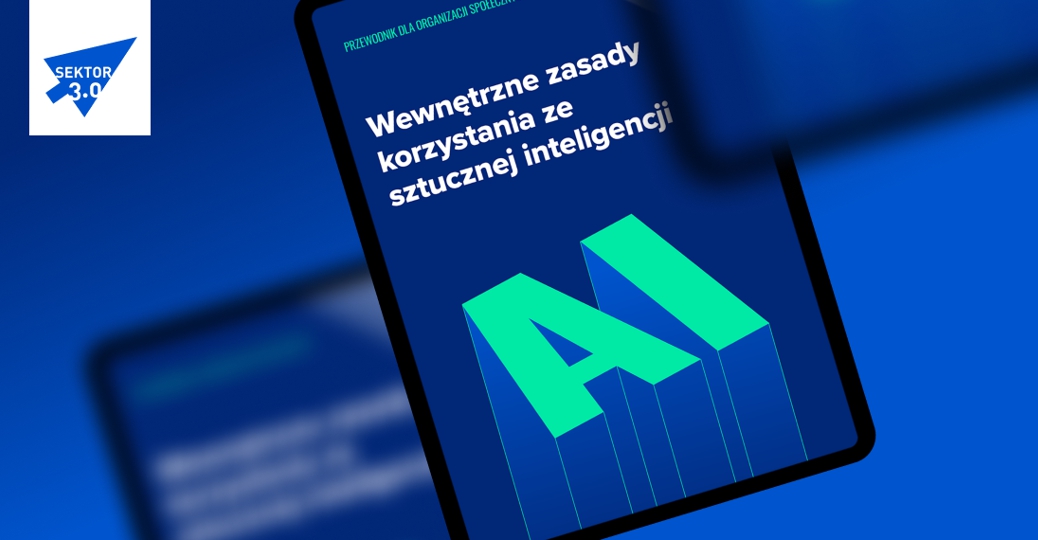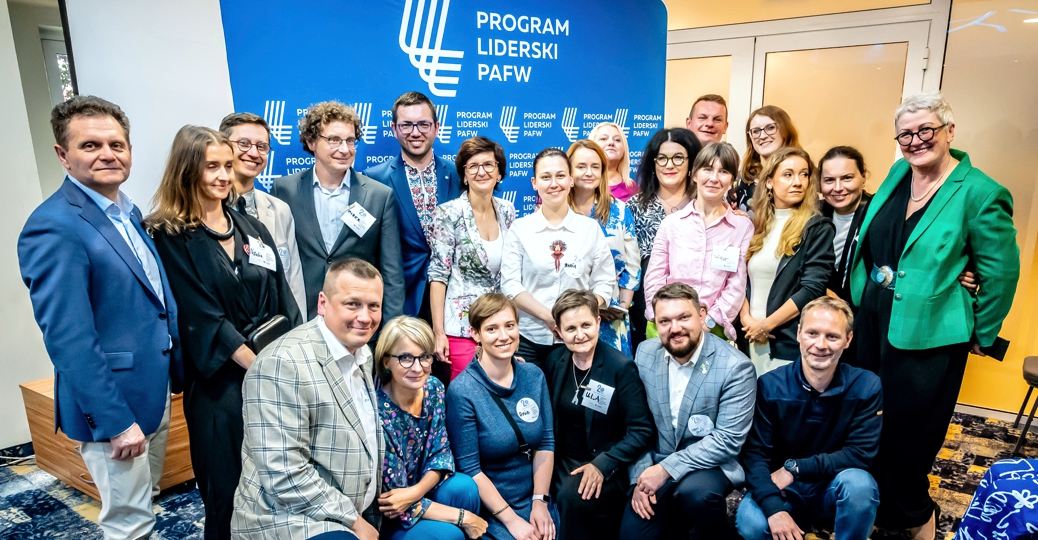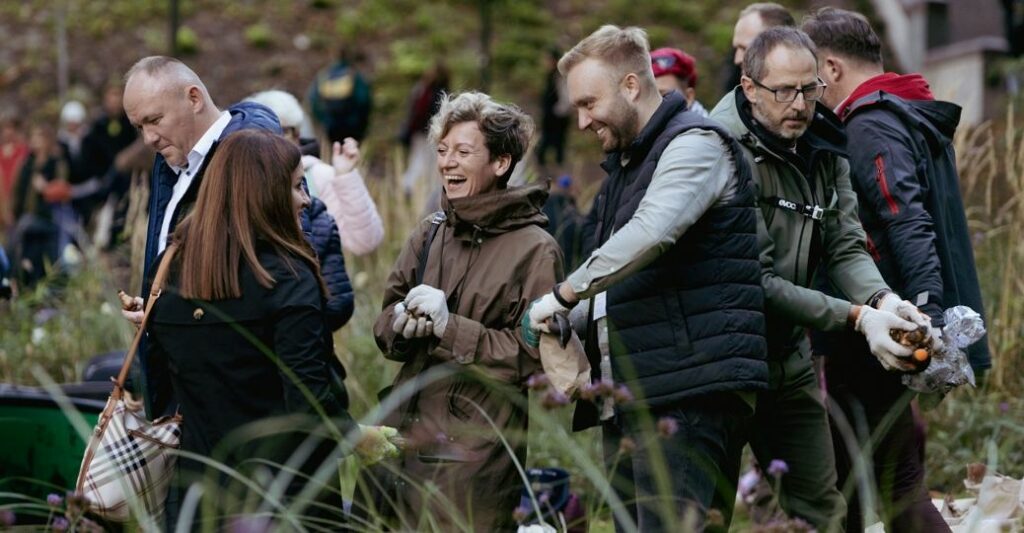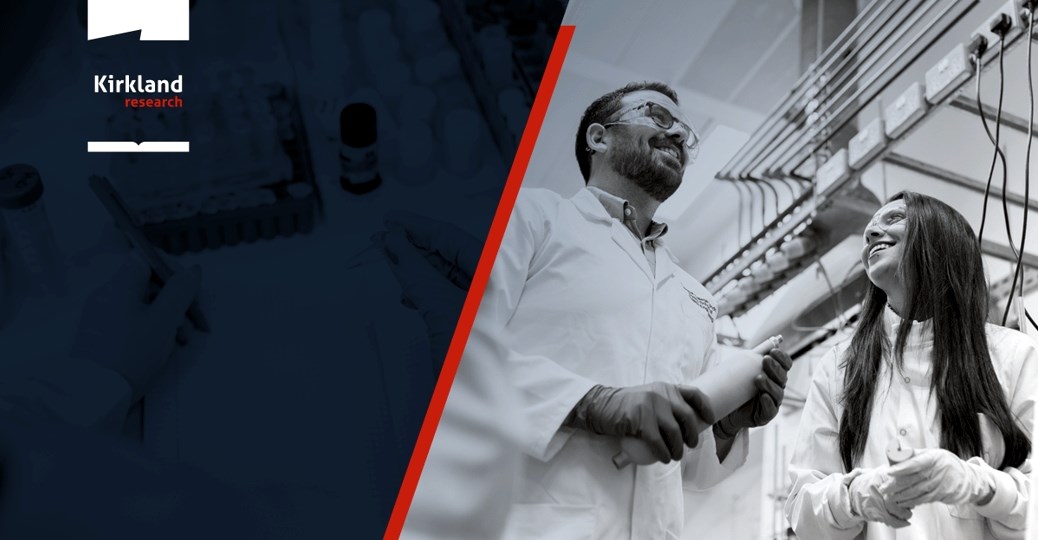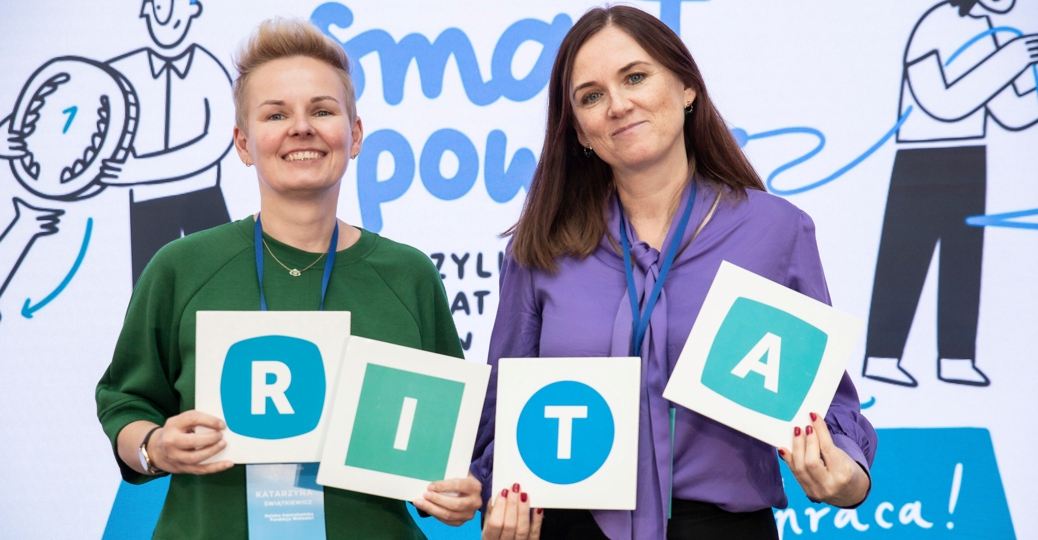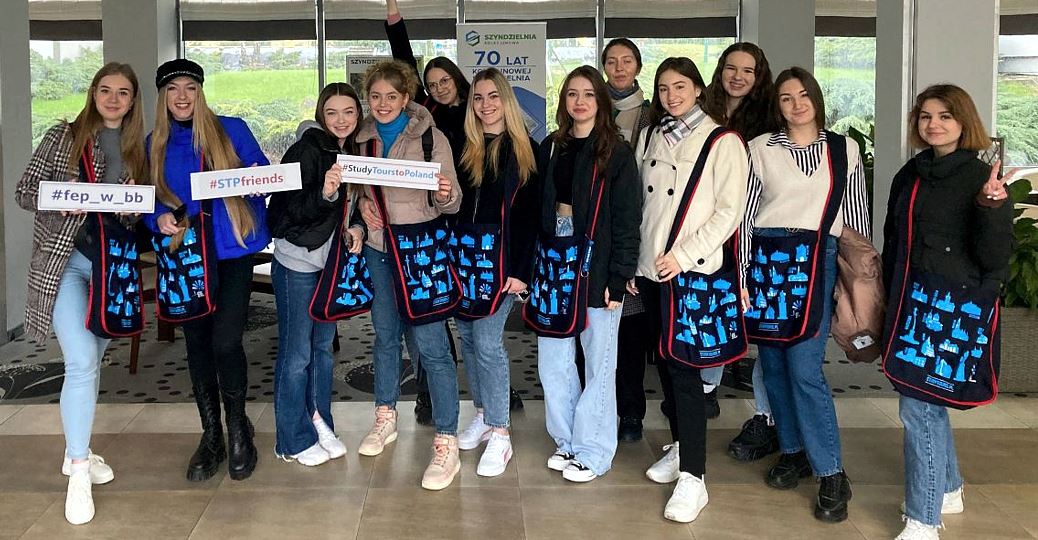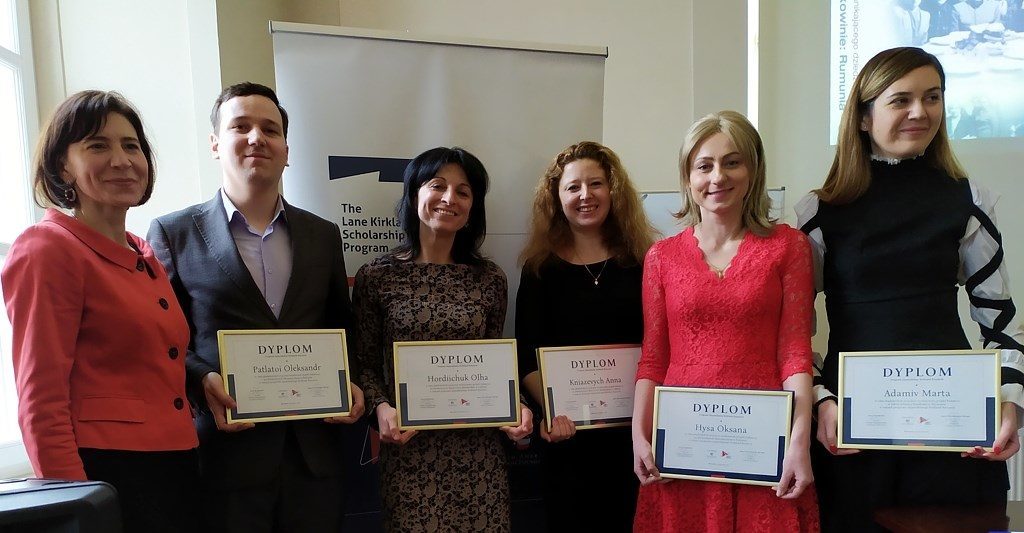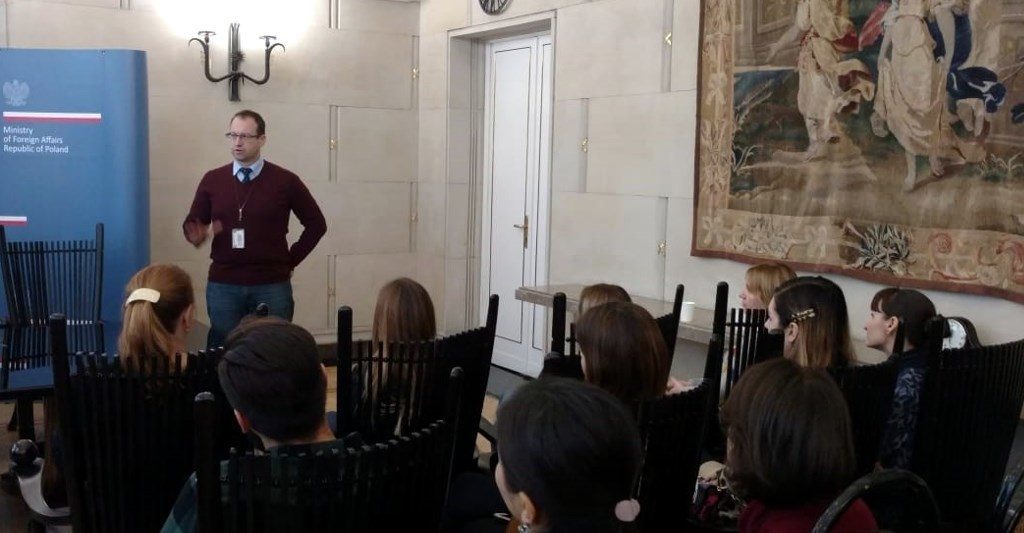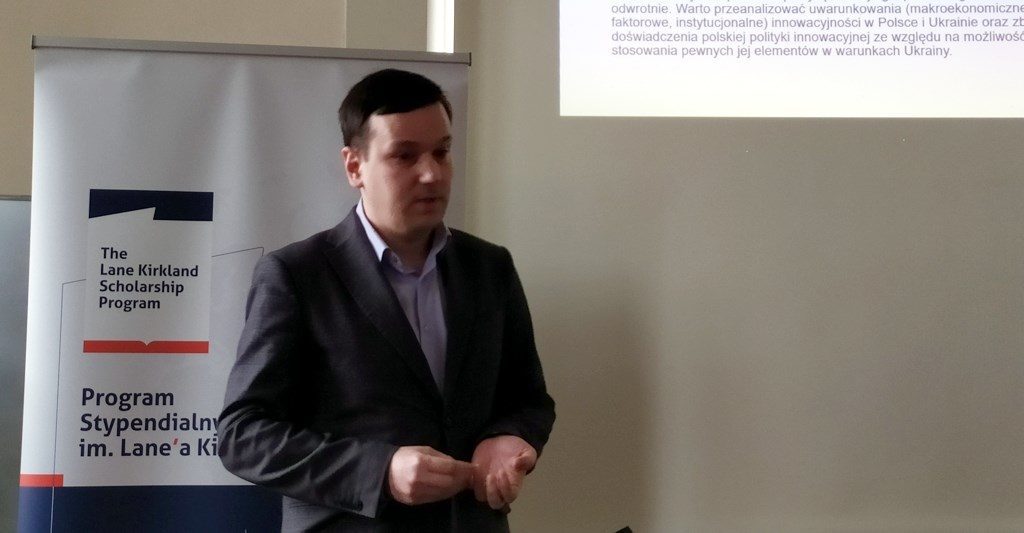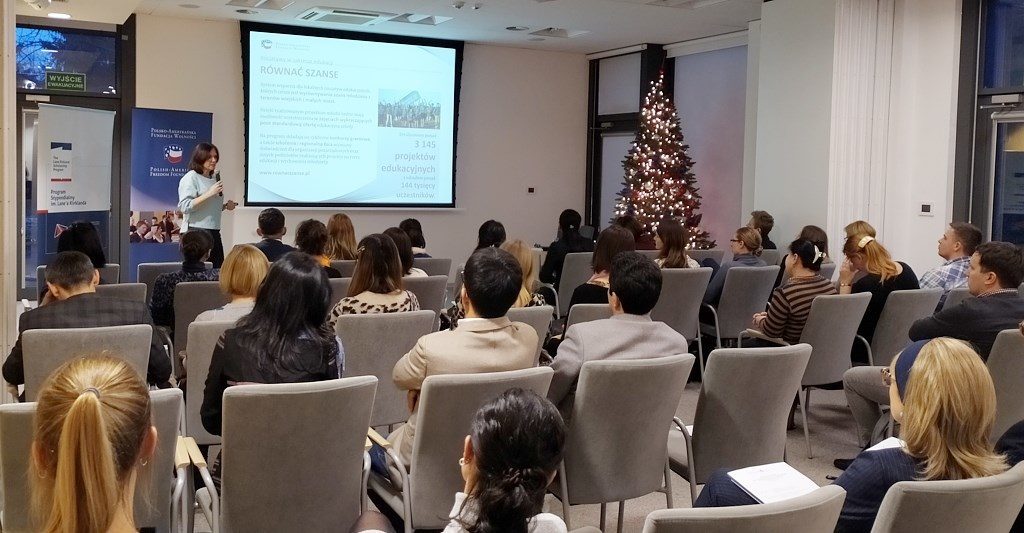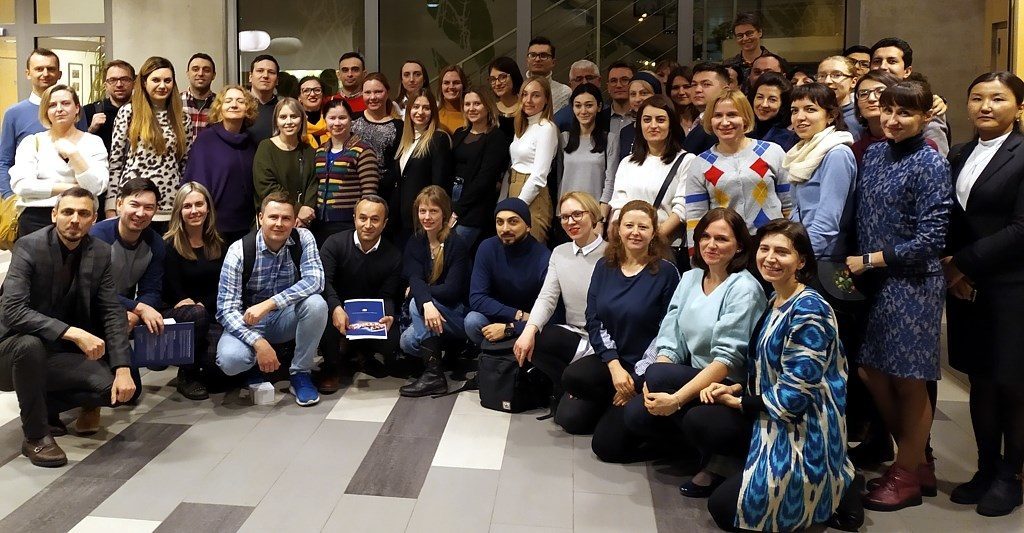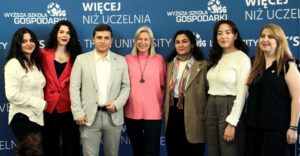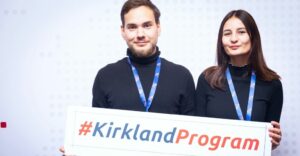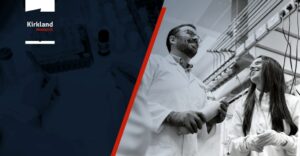47 scholarship holders from 11 countries of Eastern Europe, South Caucasus and Central Asia are studying in Poland under the jubilee 20th round of the Kirkland Program. They met in Warsaw on January 29-31, 2020. The main theme of the meeting was 30 years of democratic transformation in Poland.
The inaugural meeting took place at University of Warsaw. The guests were welcomed by Agata Wierzbowska-Miazga, President of the Leaders of Change Foundation and Marek Gołkowski who represented the Center for East European Studies, University of Warsaw. Then Prof. Wiktor Ross gave a lecture on the political transformation in Poland.
On the second day the scholarship holders visited the Ministry of Foreign Affairs, where they had a meeting with Jan Hofmokl, Director of Eastern Division MFA. That meeting was an opportunity to learn about Polish eastern policy, in particular about relations with the countries represented by this-year’s Kirkland Scholarship holders.
It is a tradition that the participants of that meeting visit the office of Polish-American Freedom Foundation. Agnieszka Mazur, PAFF Program Director told Kirklanders the history of the Foundation which celebrates its 20th anniversary this year. The scholarship holders learned about other PAFF’s international initiatives, such as “Region in Transition” (RITA), and “Study Tours to Poland” (STP).
The Kirkland scholarship holders participated also in a meeting on copyright and related rights in the context of Polish and European regulations, which is a really important issue. Visit to Warsaw was also an opportunity to meet Ambassador of Ukraine to Poland Andrij Deszczyca.
The meeting in Warsaw was the last integration meeting attended by this-year’s Kirkland Research participants. On January 28, five interns who had come from Ukraine completed their research stay in Poland. The crowning point was the diploma presenting ceremony at the Center for East European Studies, University of Warsaw. During the ceremony they presented the results of their research projects carried out by them with the support of their tutors over their internship. They were the following: Polish Customs Office experience and possibilities of implementing it in the Ukraine Customs system reform under the EU accession process; Ukrainian mentality versus Polish one – common and different characteristics; Cultural education of students with disability on the example of selected Poznań universities; Innovative economy – international assessment and factors that impact development of a country; Innovation and conditions for it in a post-transformation economy on the example of Ukraine and Poland. Kirkland Research is an additional path of the Kirkland Scholarship Program established in 2016. It offers a 4-month research internship at Polish universities to scientists and academics with established position. Since launching that path Kirkland Research internships have been completed by 14 people.
The Lane Kirkland Scholarship Program, celebrating this year its 20th anniversary, serves sharing Polish experience in political transformation and European integration with representatives of Eastern Europe, South Caucasus and Central Asia through two-semester complementary studies at Polish universities. The program is currently addressed to candidates from Armenia, Azerbaijan, Belarus, Georgia, Kazakhstan, Kyrgyzstan, Moldova, Russia, Tajikistan, Ukraine and Uzbekistan. Each year the program is participated by some 45 scholarship holders. Over 2000-2019 years the program has been completed by 832 people from 11 countries.









